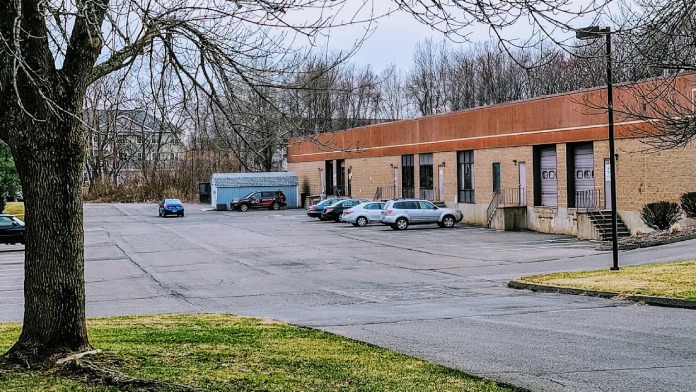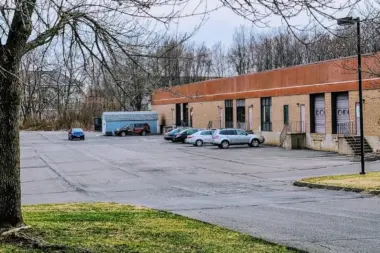Their real issue is communication. They are inconsistent with medical insurance/coverage, doctors are never on time, you wait for at least 30 for appointments after the set time, calling the doctor so many times in order to get a refill, no privacy, and I could go on.
About Hockanum Valley Community Council
Hockanum Valley Community Council (HVCC) is a human service agency dedicated to meeting the needs of residents in Vernon and the Tolland County area of Connecticut. They offer services to individuals and families in a manner that promotes independence. This is all while ensuring that basic needs are met, regardless of the ability to pay.
Services to Build a New Life in Recovery
Services range from a food pantry and behavioral healthcare to case management and transportation assistance. This particular location in Vernon Rockville is a state-licensed outpatient center for mental health and substance use treatment.
This clinic offers counseling and case management to adults and children within this city and nearby Manchester, Hartford and Tolland. They’re situated near I-84 for direct access to Hartford and a mile south of US Route 30 for quick connection to local neighborhoods. CTtransit Bus Route 24 has a stop near the clinic for easy access.
Addiction Recovery with Medication Support
HVCC starts with comprehensive intake assessment and personalized treatment planning to ensure tailored therapeutic support. They’ll provide referrals to outside providers if your assessment indicates the need for high-intensity inpatient care, since they only have outpatient treatment. Therapeutic support here is delivered in group and individual settings to help you address underlying psychological issues and build strong coping and relapse prevention strategies. Groups encompass relapse prevention, substance abuse, parenting education and recovery maintenance.
Your tailored care may incorporate medication-assisted treatment (MAT), especially if you’re dealing with opioid addiction or alcoholism. This technique pairs FDA-approved meds with counseling to deliver wholesome care. Their MAT involves a prescription of Suboxone to help you alleviate painful withdrawal symptoms and curb cravings. The program also involves ongoing therapy and assessments to monitor the success of your medication-assisted recovery.
They’ll link you to community services that support lasting healing via case management as you move forward. These include services that help with affordable housing, vocational and educational assistance and medical care. This enables you to maintain stability and stay on track with your goals.
Latest Reviews
We’d welcome the opportunity to connect with you directly and learn more. Please feel free to reach out to us at 860-872-7727, press 0, and ask to speak with the Program Manager.
Rehab Score
Gallery


Accepted Insurance
Other Forms of Payment
Medicaid is a state based program that helps lower-income individuals and families pay for healthcare. Medicaid covers addiction treatment so those enrolled can use their coverage to pay for rehab. When a program accepts Medicaid the client often pays very little or nothing out of their own pocket.
Private insurance refers to any kind of healthcare coverage that isn't from the state or federal government. This includes individual and family plans offered by an employer or purchased from the Insurance Marketplace. Every plan will have different requirements and out of pocket costs so be sure to get the full details before you start treatment.
Self-pay involves paying for treatment out of your own pocket. You can use savings or credit, get a personal loan, or receive help from family and friends to fund your treatment. If you don't have insurance or your insurance plan doesn't cover a specific program, self-pay can help ensure you still get the care you need.
Sliding scale payments are based on a client's income and family size. The goal is to make treatment affordable to everyone. By taking these factors into account, addiction recovery care providers help ensure that your treatment does not become a financial burden to you or your family, eliminating one barrier to care.
Medicare is a federal program that provides health insurance for those 65 and older. It also serves people under 65 with chronic and disabling health challenges. To use Medicare for addiction treatment you need to find a program that accepts Medicare and is in network with your plan. Out of pocket costs and preauthorization requirements vary, so always check with your provider.
Military members, veterans, and eligible dependents have access to specific insurance programs that help them get the care they need. TRICARE and VA insurance can help you access low cost or no cost addiction and mental health treatment. Programs that accept military insurance often have targeted treatment focused on the unique challenges military members, veterans, and their families face.
Addiction Treatments
Levels of Care
Outpatient Programs (OP) are for those seeking mental rehab or drug rehab, but who also stay at home every night. The main difference between outpatient treatment (OP) and intensive outpatient treatment (IOP) lies in the amount of hours the patient spends at the facility. Most of the time an outpatient program is designed for someone who has completed an inpatient stay and is looking to continue their growth in recovery. Outpatient is not meant to be the starting point, it is commonly referred to as aftercare.
Treatments
Many of those suffering from addiction also suffer from mental or emotional illnesses like schizophrenia, bipolar disorder, depression, or anxiety disorders. Rehab and other substance abuse facilities treating those with a dual diagnosis or co-occurring disorder administer psychiatric treatment to address the person's mental health issue in addition to drug and alcohol rehabilitation.
Mental health rehabs focus on helping individuals recover from mental illnesses like bipolar disorder, clinical depression, anxiety disorders, schizophrenia, and more. Mental health professionals at these facilities are trained to understand and treat mental health issues, both in individual and group settings.
Programs
Adult rehab programs include therapies tailored to each client's specific needs, goals, and recovery progress. They are tailored to the specific challenges adult clients may face, including family and work pressures and commitments. From inpatient and residential treatment to various levels of outpatient services, there are many options available. Some facilities also help adults work through co-occurring conditions, like anxiety, that can accompany addiction.
Young adulthood can be an exciting, yet difficult, time of transition. Individuals in their late teens to mid-20s face unique stressors related to school, jobs, families, and social circles, which can lead to a rise in substance use. Rehab centers with dedicated young adult programs will include activities and amenities that cater to this age group, with an emphasis on specialized counseling, peer socialization, and ongoing aftercare.
Clinical Services
Cognitive Behavioral Therapy (CBT) is a therapy modality that focuses on the relationship between one's thoughts, feelings, and behaviors. It is used to establish and allow for healthy responses to thoughts and feelings (instead of unhealthy responses, like using drugs or alcohol). CBT has been proven effective for recovering addicts of all kinds, and is used to strengthen a patient's own self-awareness and ability to self-regulate. CBT allows individuals to monitor their own emotional state, become more adept at communicating with others, and manage stress without needing to engage in substance abuse.
Whether a marriage or other committed relationship, an intimate partnership is one of the most important aspects of a person's life. Drug and alcohol addiction affects both members of a couple in deep and meaningful ways, as does rehab and recovery. Couples therapy and other couples-focused treatment programs are significant parts of exploring triggers of addiction, as well as learning how to build healthy patterns to support ongoing sobriety.
Research clearly demonstrates that recovery is far more successful and sustainable when loved ones like family members participate in rehab and substance abuse treatment. Genetic factors may be at play when it comes to drug and alcohol addiction, as well as mental health issues. Family dynamics often play a critical role in addiction triggers, and if properly educated, family members can be a strong source of support when it comes to rehabilitation.
Group therapy is any therapeutic work that happens in a group (not one-on-one). There are a number of different group therapy modalities, including support groups, experiential therapy, psycho-education, and more. Group therapy involves treatment as well as processing interaction between group members.
In individual therapy, a patient meets one-on-one with a trained psychologist or counselor. Therapy is a pivotal part of effective substance abuse treatment, as it often covers root causes of addiction, including challenges faced by the patient in their social, family, and work/school life.
Trauma therapy addresses traumatic incidents from a client's past that are likely affecting their present-day experience. Trauma is often one of the primary triggers and potential causes of addiction, and can stem from child sexual abuse, domestic violence, having a parent with a mental illness, losing one or both parents at a young age, teenage or adult sexual assault, or any number of other factors. The purpose of trauma therapy is to allow a patient to process trauma and move through and past it, with the help of trained and compassionate mental health professionals.
Staff
David O'Rourke
CEO
Leela Panoor
Medical Director
Contact Information
27 Naek Road
Suite 4
Vernon Rockville, CT 06066




